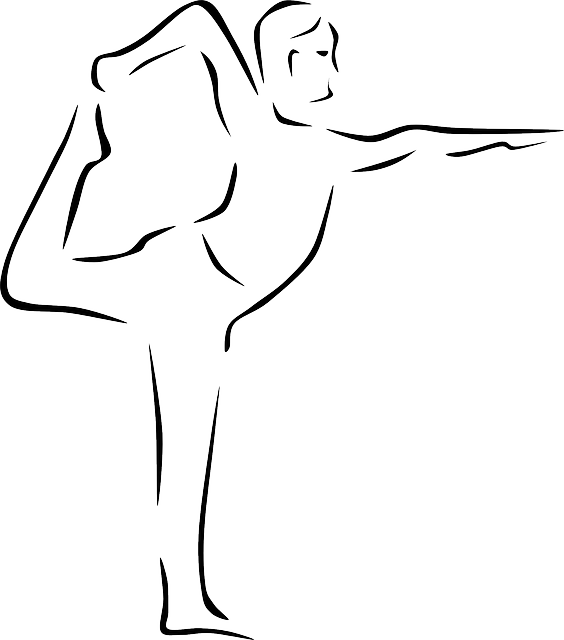Aromatherapy, using plant essential oils, offers a holistic approach to wellness, enhancing mental and physical well-being. Incorporating aromatherapy into activities like mindfulness, meditation, yoga, and relaxation can significantly boost overall health. It is increasingly integrated into structured wellness programs, including mental health workshops, stress management, fitness, and nutrition counseling, addressing the mind-body connection for optimal wellness experiences.
Incorporating aromatherapy into daily wellness routines offers a powerful way to enhance both mental and physical well-being. This holistic approach leverages the healing properties of essential oils, providing a sensory experience that calms the mind, soothes the body, and invigorates the spirit. From understanding the science behind scents to practical tips for integration, this article explores how aromatherapy can be tailored into comprehensive wellness programs alongside mindfulness, meditation, yoga, fitness, nutrition, and mental health workshops.
- Understanding Aromatherapy: Unlocking the Power of Scents for Holistic Wellness
- Integrating Aromatherapy into Daily Routines: Practical Tips and Techniques
- The Science Behind Scent: How Aromatherapy Affects Mind and Body
- Creating Comprehensive Wellness Programs: Combining Aromatherapy with Other Practices
Understanding Aromatherapy: Unlocking the Power of Scents for Holistic Wellness

Aromatherapy is an ancient practice that leverages the power of essential oils to promote holistic wellness. By inhaling or applying these concentrated plant extracts, individuals can unlock a range of benefits for both mind and body. Essential oils like lavender, peppermint, and eucalyptus are known for their calming, energizing, and antimicrobial properties, making them valuable additions to any wellness routine. Incorporating aromatherapy into daily practices such as mindfulness and meditation, yoga sessions, or even simple relaxation moments, can significantly enhance overall well-being.
In today’s fast-paced world, stress management programs often include holistic approaches like aromatherapy to address the mind-body connection. Mental health workshops and fitness and exercise plans can seamlessly integrate these natural remedies for a comprehensive wellness program. Additionally, nutrition and diet counseling can benefit from aromatherapy’s ability to support digestion and enhance appetite. Whether through diffusing essential oils during meditation or using them in topical applications after yoga, aromatherapy offers a sensory experience that can profoundly impact one’s journey towards holistic wellness.
Integrating Aromatherapy into Daily Routines: Practical Tips and Techniques

Integrating aromatherapy into your daily routine can significantly enhance both your mental health workshops and physical wellness programs. Start by selecting essential oils that align with your personal goals; lavender for relaxation, peppermint for energy, and tea tree for purification are popular choices. Incorporate these oils into your morning or evening rituals—add a few drops to your shower gel or diffuser during yoga sessions for a calming effect, or use them in massage oils during fitness routines for muscle relief.
For optimal results, consider combining aromatherapy with other holistic wellness practices like mindfulness and meditation, as well as nutrition and diet counseling. Incorporate these into your daily schedule through structured programs that include specific times for each activity. This could be as simple as dedicating 10 minutes before bed to a breathing exercise while diffusing calming scents or incorporating a post-workout stretching session with aromatic oils to aid in muscle recovery.
The Science Behind Scent: How Aromatherapy Affects Mind and Body

Aromatherapy, an ancient practice that uses essential oils derived from plants, has gained modern popularity for its profound impact on both mind and body wellness. The science behind it lies in our sense of smell, which is directly linked to emotions and memory. When we inhale aromatic compounds, they stimulate olfactory receptors in the nose, triggering a cascade of neurochemical responses. This can activate the limbic system, our brain’s emotional center, leading to reduced stress, improved mood, and enhanced cognitive function.
Research suggests that aromatherapy can be a powerful tool within holistic wellness programs, mental health workshops, and stress management practices. Essential oils like lavender, known for its calming properties, have been shown to reduce anxiety and improve sleep quality. Peppermint oil can boost focus and energy while citrus scents elevate mood and enhance concentration. Incorporating aromatherapy into fitness routines, yoga sessions, or even during mindfulness and meditation practices can create a sensory experience that enhances the overall benefits of these wellness activities, supporting a more balanced and healthy lifestyle through various wellness programs for mind and body.
Creating Comprehensive Wellness Programs: Combining Aromatherapy with Other Practices

Incorporating aromatherapy into daily wellness routines allows for a holistic approach to mind and body care. Beyond its fragrant appeal, essential oils possess therapeutic properties that can complement various wellness practices. For instance, combining aromatherapy with mindfulness and meditation can deepen relaxation and enhance focus during sessions. Similarly, diffusing calming scents like lavender or chamomile before yoga or during fitness sessions may improve flexibility and reduce post-exercise soreness.
Holistic wellness programs often include mental health workshops, stress management programs, nutrition and diet counseling alongside physical activities like yoga and exercise plans. Aromatherapy seamlessly integrates into these comprehensive programs by addressing emotional well-being, promoting healthy habits, and enhancing the overall experience of each component. By incorporating aromatherapy, practitioners can create tailored routines that support individuals in achieving optimal mind-body wellness.
Incorporating aromatherapy into your daily routine can significantly enhance holistic wellness programs, offering a powerful tool for managing stress, improving mental health, and fostering overall well-being. As discussed, understanding the science behind scents and their impact on both mind and body is key to unlocking aromatherapy’s benefits. Combining this ancient practice with modern approaches such as mindfulness and meditation, yoga for wellness, fitness and exercise plans, and nutrition and diet counseling can create comprehensive stress management programs that cater to both physical and mental health workshops. By integrating these practices, individuals can embark on a transformative journey towards a more balanced and fulfilling life.
